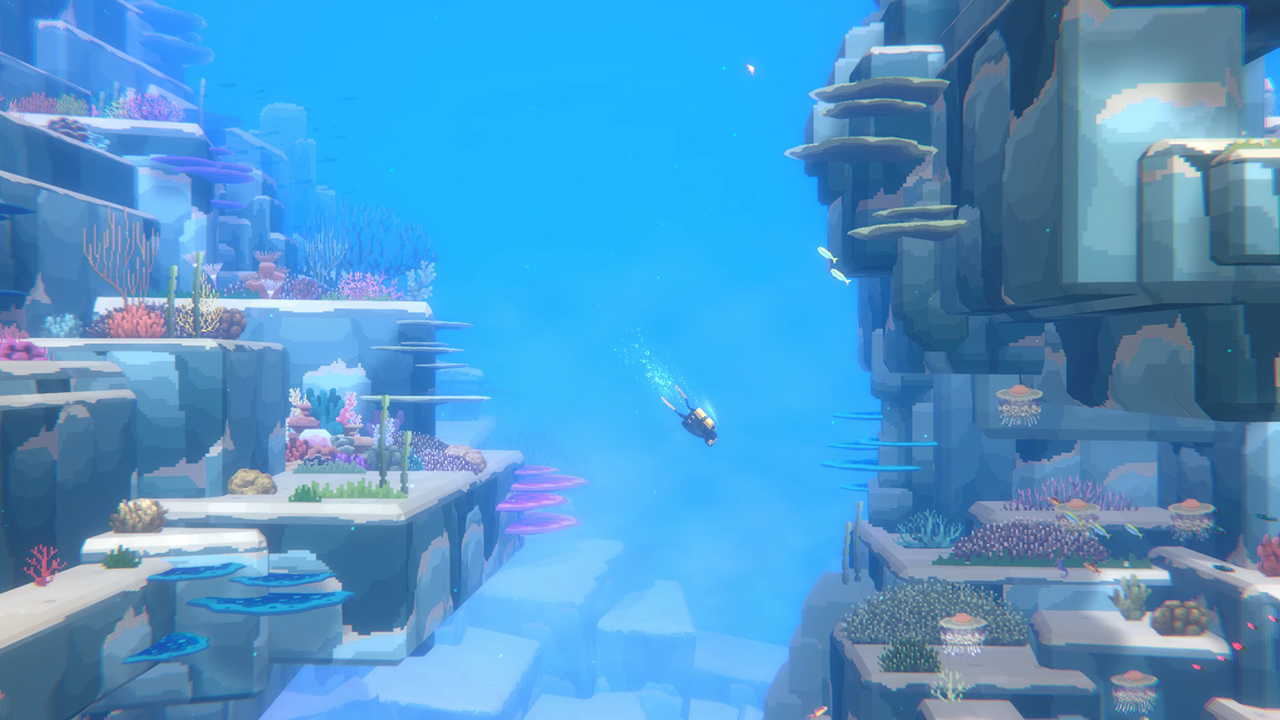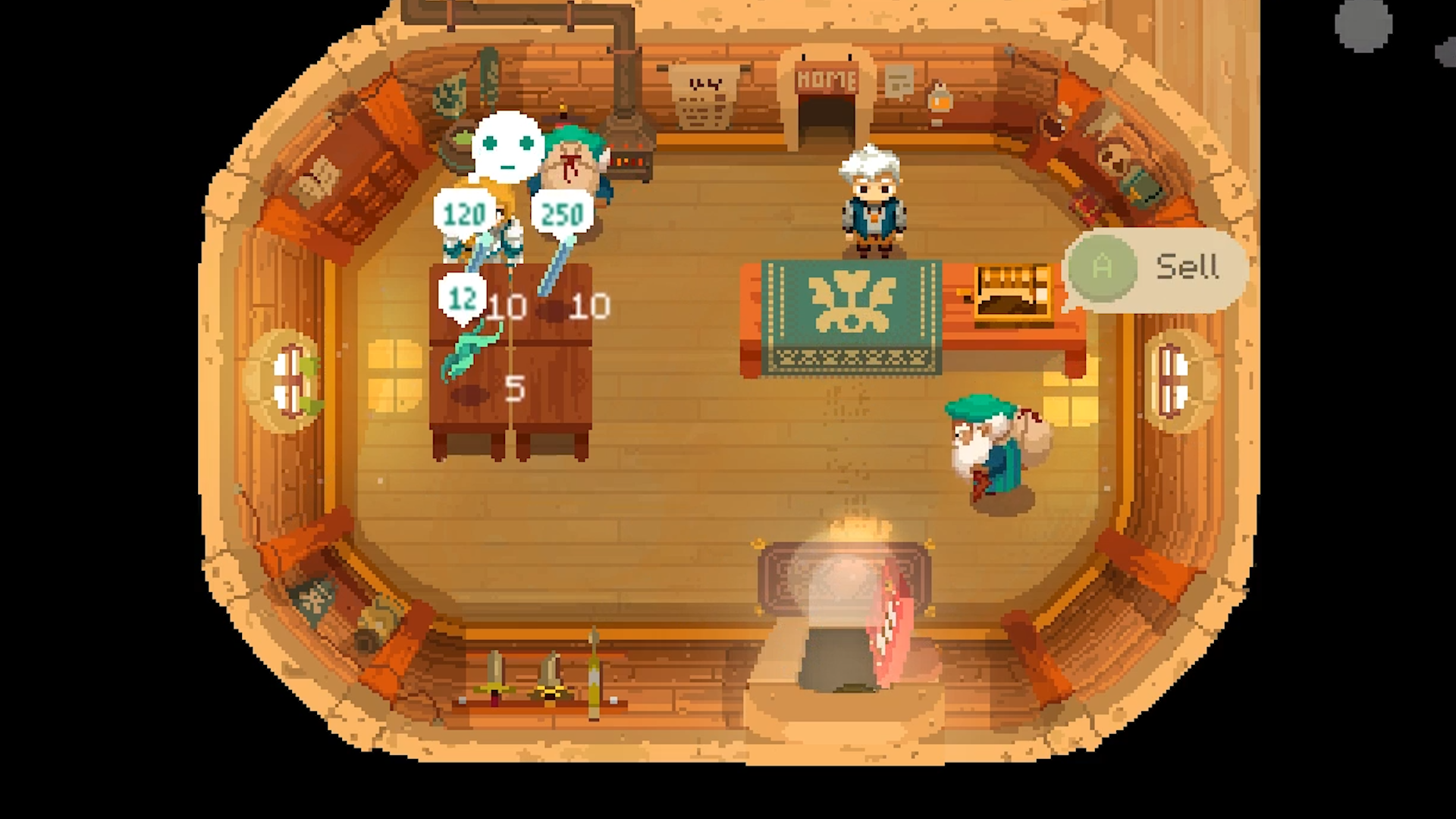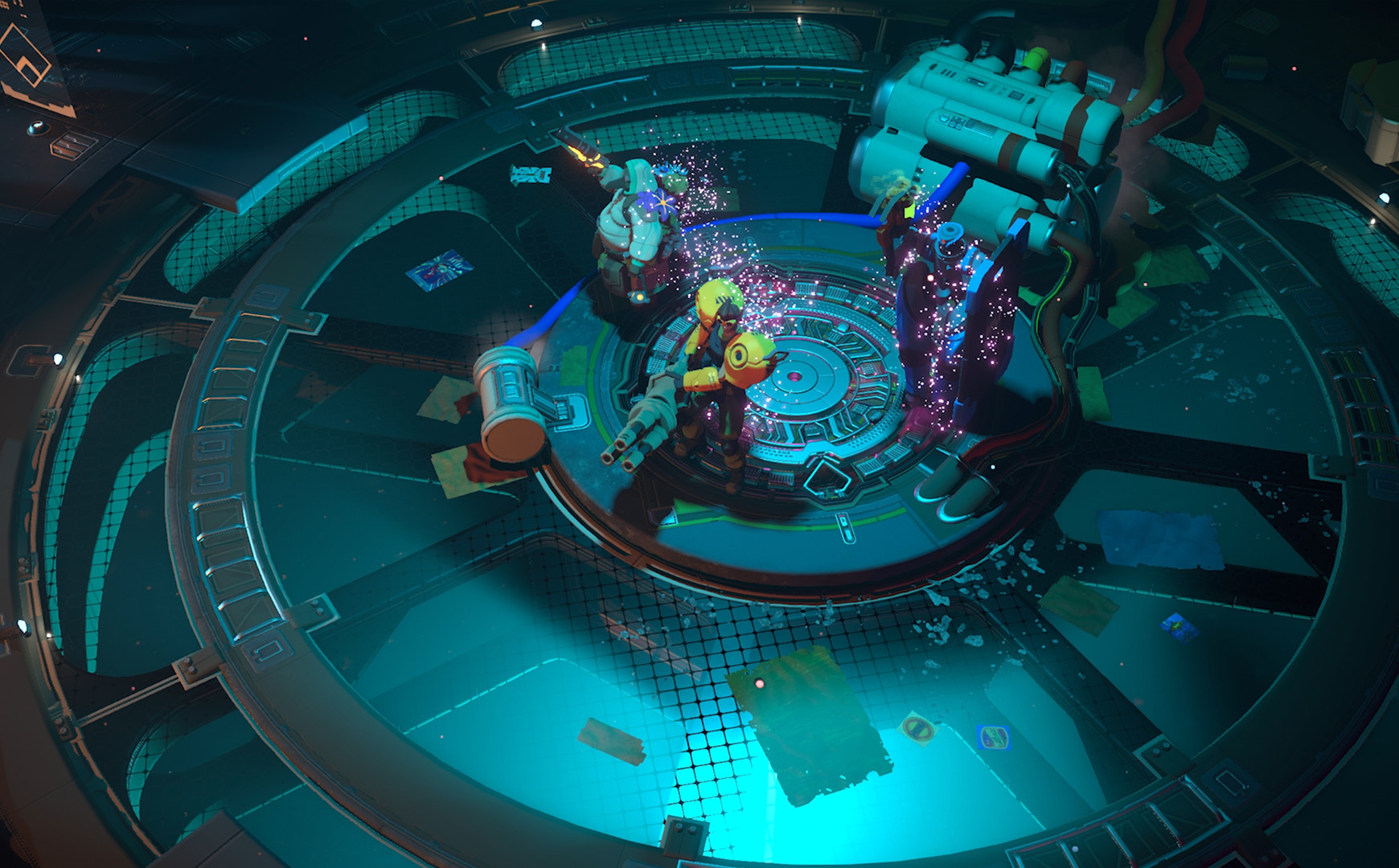
[ad_1]
I’m pretty sure I wrote about this topic quite a while ago but I oddly enough haven’t been able to locate the post. The topic in question is something that seems to resurface every once in a while: What exactly is an Indie Game?
This time around, this discussion was sparked by Dave the Diver being nominated for “Best Indie Game” despite being backed by a major player in the games industry such as NEXON.
So, naturally, this caused quite a bit of a stir. There are a lot of people who are now discussing what actually is supposed to be “Indie” and what doesn’t count anymore… hence, I wanted to add my two cents on the matter.
Small Note – I’m using images from different games in this post that are purely decorative. The games in question are (in order of appearance): Dave the Diver, Moonlighter, Endless Dungeon, and World of Horror. Two of those games are Indie, and two others are not. 🙂
- Why is Dave the Diver not Indie?
- What does it mean to be independent or indie?
- Funding, Size and other factors
- What I’m trying to say…
- Last but not least,…
Why is Dave the Diver not Indie?
Dave the Diver is probably one of my favourite games that came out this year… aside from Endless Dungeon, of course. I really enjoyed the Early Access of DtD and was incredibly happy with how the story concludes in this game (not to mention the fact that you can keep playing after the ending).
Dave the Diver is a mix of roguelike and restaurant management sim where you dive into the ocean during the day to catch fish to serve at night.
The game left Early Access earlier this year and achieved raving reviews with many people praising the soundtrack, core gameplay loop, and the general charm and feel that the game features. It’s a bliss to play, frankly.
That being the case, while the game is Mintrocket’s debut title (aka their first game) and while they are a relatively small studio from what I can tell… they’re fully owned by NEXON (who you may know about because of MapleStory, Counter Strike Online, FF14, and other games).
The reason why Dave the Diver definitely isn’t “Indie” is due to the fact that it’s not independent. Again, NEXON. Big Name in the industry.

What does it mean to be independent or indie?
So, thus, we have to ask what exactly “indie” is and what contributes to this definition. Here, I want to point out certain qualifiers that people have mentioned in the past whenever this discussion came up… and the flaws in their points.
For starters, big companies appear to be a problem for the definition – after all, NEXON owns Mintrocket, the studio behind Dave the Diver.
The issue with this is that what this factor is about isn’t actually the size of the company but the funding a game has received. AAA games have huge budgets, after all, so independent games naturally have smaller budgets.
But if that’s the case, do we differentiate between low-budget games and indie games, or are those the same?
The big problem with “funding” is that funding can come from anywhere and it’s not always visible. If a big budget is problematic, then are Kickstarter campaigns problematic as well? Are Kickstarter-funded games not indie due to the funding received from fans?
Similarly, the size of a team is also very dependent on the budget they have. With less budget, the team has to be smaller… but what if a developer simply is already incredibly rich?
Let’s play devil’s advocate and say Bill Gates starts learning Unity to develop a cute tycoon game about building up a computer company, titled “Megahard”. Since he’s a solo developer, he clearly is an indie developer… but he has the funding of a multimillionaire.
Obviously, someone could also simply have rich parents or a wealthy friend or maybe they just robbed a bank… but the point still stands: If a solo developer or a small team has a big backer, the game isn’t really independent, right? But then what do we do about titles that have funds that cannot be seen so easily by the public eye?

Funding, Size and other factors
The problem is that if we only talk about the funding a studio or developer received for a game, we may fall into the trap of excluding games that are very much “indie” but got grants from countries, such as Germany or France which regularly give out grants to developers from their country.
If we talk about the size of a studio, and only that, we end up disregarding the funding they may have received that gives them an advantage over something made from scratch for free by some hobby-dev.
Clearly, the size of the team and the budget a game has received are important. Similarly, its ties to other companies are also a big factor… but what do we do about publishers then?
If Devolver Digital helps yet another indie game like they did with KarmaZoo and Cult of the Lamb, then are those games not indie anymore since they’re tied to a big player like DD?
I mean a publisher can provide not just know-how and funding but also resources that many developers simply don’t have. Social Media Managers, Community Managers, QA, and PR are tough gigs to manage as a small studio.
A studio that gets these resources has a clear advantage over another that doesn’t have this at all.
Similarly, not every publisher provides the same assistance as another. Some publishers are more willing to help with funding but don’t necessarily help with the other stuff. Others simply help with porting, sales, PR, etc. but don’t actually provide any funding. A publisher’s job isn’t as clear as day as many make it out to be.

What I’m trying to say…
To sum this section up, I wanna say that it’s not as easy as just pointing at one thing or another.
Without clear definitions of what counts as indie and what doesn’t, we won’t get anywhere with this discussion since this isn’t just about one thing or another. It’s a problem that arises from the perversion of the word “Indie”.
When it comes to definitions like “indie” and “AAA”, it’s not black or white, even if people make it out like that.
Over time, people have called games “indie” based on key factors like the size of the team, pixel art, stylized and unique gameplay, the price point, and their budget. What constitutes “indie” became so broad in terms of definitions that it doesn’t really mean anything anymore as a term. It became overused to the point of losing its meaning.
Rather, I feel like we should be more specific in what these terms are supposed to mean. Judging by the other games nominated by The Game Awards for “Best Indie Game”, it clearly is about lower budget games that have a smaller and often-times less-experienced team.
We have Cocoon (dev: Geometric Interactive, pub: Annapurna Interactive), Dredge (dev: Black Salt Games, pub: Team 17), Viewfinder (dev: Sad Owl Games, pub: Thunderful Publishing), Sea of Stars (Sabotage Studios), and Dave the Diver (Mintrocket) as nominees.
Obviously, nobody cares about the Game Awards… but also people very much look at them… and the fact that Dave the Diver is among the games there means that titles like Astrea: Six-Sided Oracles, The Mageseeker, Bomb Rush Cyberfunk, World of Horror, etc. can’t be in those spots. Must feel pretty bad for those devs, no?
The thing is that if a game made by a subdivision of such a big company like NEXON can make it to “Best Indie”, then surely Endless Dungeon could have been there, too, despite being made by AMPLITUDE Studios… which is owned by SEGA.

Last but not least,…
I wanted to also mention that this discussion comes up every once in a while… and whenever it does, it gets ugly.
To discuss whether a game is “indie” or whether it isn’t means to engage in gatekeeping. This in itself is problematic.
But these discussions also always end up creating a lot of heat online, especially on platforms like X (formerly known as Twitter) where the letter limit doesn’t quite help the issue of nuance.
What I’m trying to get at here is that I’ve seen people get upset at Mintrocket and NEXON over this… but the devs themselves also stated that Dave the Diver isn’t indie, at all, even if it “looks like it”.
Targeting developers over prizes they were nominated for is ridiculous. So don’t do that.
Instead, we should bring this to the attention of the people responsible for The Game Awards. We should exclaim that this isn’t a great look for an award show that a lot of people weirdly enough care about.
If we care that much about smaller games and smaller studios, we should be respectful and civil while also loud and vocal.
Anyhow, I think these discussions on whether or not something is “indie” are kind of pointless. People use the term “indie” synonymously for “low-budget” or “made by a small team” but it’s way too inconsistent. Rather than fighting over whether specific games are or aren’t indie, we should try and define the term better or attempt to stop using it as much. That is, IF we care, at all.
This post was first published on Indiecator by Dan Indiecator aka MagiWasTaken. If you like what you see here and want to see more, you can check me out on Twitch and YouTube as well.
[ad_2]